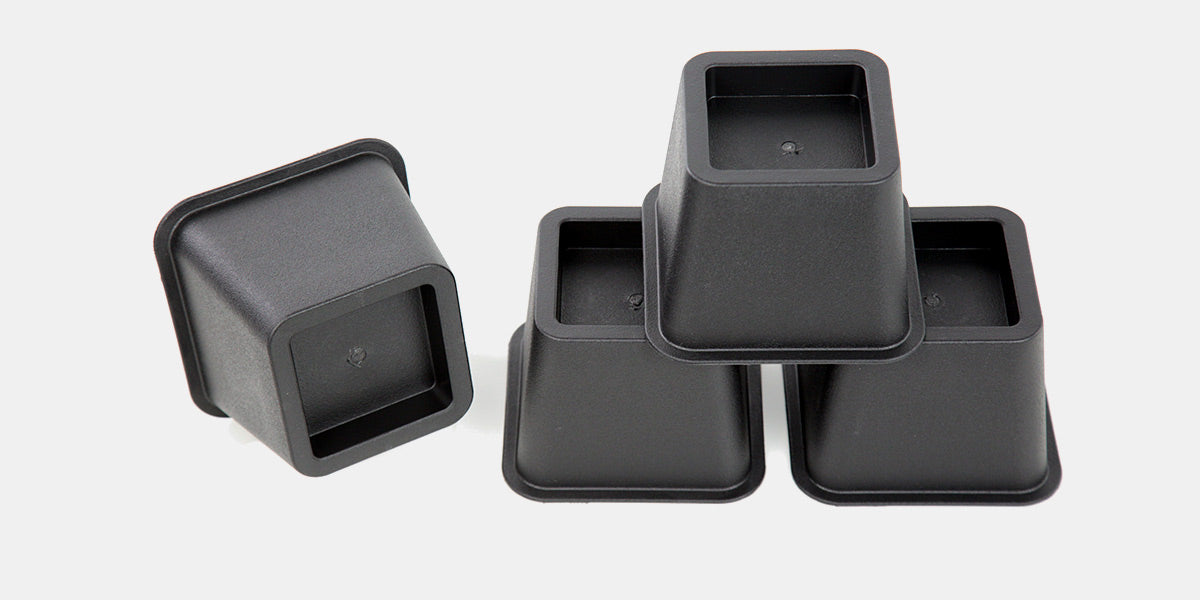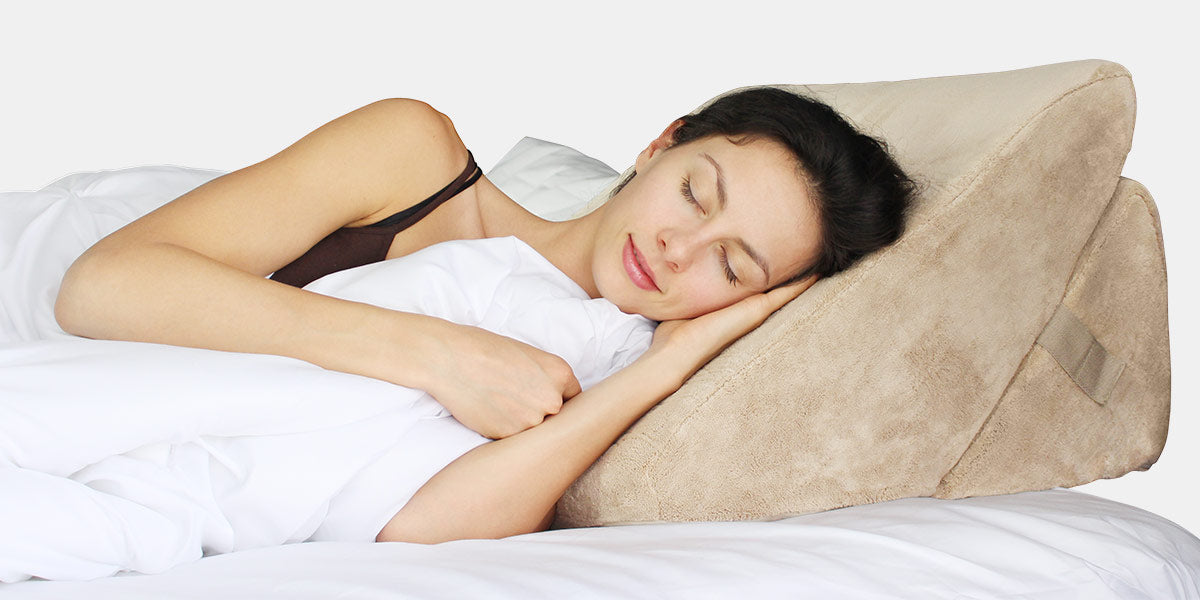Since snoring affects more than 64% of adults, it is a problem that should be taken seriously. While it can result from a wide range of everyday causes causes, chronic snoring can be a sign of a more serious health issue like Obstructive Sleep Apnea. In this post, you will find more details on snoring, the causes, and treatment.
What is Snoring?
Snoring is throat vibration caused by obstructed airflow. Normally, our throat muscles relax while sleeping, but in some people, they can relax too much, forcing the tongue to fall backwards into the airway. The sound produced can either be soft or loud depending on the cause and the predisposing risk factors. For example, people with genetically narrow throats tend to snore louder than others.
Types of Snorers
Learn more about all the different types of snorers below, and find out which option sounds the most like you.
-
Nasal Snorer
Snorers are classified into nasal, mouth, or tongue based on the cause and treatment. To determine the type of snorer you are, observe your sleeping patterns using a sleep cycle machine or ask your partner to help you keep a sleep diary.
-
Mouth Snorer
When the uvula vibrates it will close the airways, forcing you to breathe with your mouth. Mouth guards, chin straps or nasal dilators can be used to improve nasal breathing.
-
Tongue Snorer
Tongue snoring occurs when your tongue drops to the back of the mouth and obstructs the airways. You can use snoring mouthpieces or position therapy like anti-snoring pillows, seat belts, or backpacks.
What Causes Snoring?
When you consistently snore, it may be a sign of a much more serious condition, and it is crucial to understand the cause so you can find a suitable treatment. Some of the reasons include:
Obstructed Nasals
Allergies, sinus infections, deviated septum, or nasal polyps (growth in the nose or sinus) can narrow the nasal airways. In these cases finding ways to broaden the air passage is crucial
Poor Muscles and Tongues
Excessive alcohol consumption, deep sleep, or the use of sleeping pills will relax the tongue and throat muscles too much causing them to collapse back into the airways. Age also weakens and affects the throat muscles.
Elongated Uvula
A swollen or elongated uvula can close the opening of the nose, and when it vibrates, it obstructs overflow causing you to snore. Children with large tonsils and adenoids are also predisposed to snoring.
Risk Factors
Some people are more predisposed to snoring than others. See several of the most common risk factors below.
- Gender--more common in men
- Increased neck circumference
- Smoking can cause inflammation of throat which further narrows the throat
- Age
- Family history
Snoring and Health Problems
Snoring is a symptom of underlying conditions like sleep apnea, but it can also a risk factor for conditions like carotid artery disease, heart attack, or stroke.
Sleep Apnea
Sleep apnea, a sleep disorder is caused when breathing stops while sleeping, and it is divided into three categories.
Obstructive Sleep Apnea
90% of all snoring cases are due to OSA which is caused by the relaxation of throat muscles.
OSA symptoms include loud snoring, excessive daytime sleepiness, abrupt awakening, fatigue, sleep deprivation, dry mouth or a sore throat in the morning, headaches, mood changes, and high blood pressure.
Central Sleep Apnea
Common symptoms of CSA include abnormal breathing patterns while sleeping, shortness of breath, insomnia, hypersomnia, chest pain, snoring, and mood changes.
Central Sleep Apnea occurs due to reduction or complete loss of neural signaling to the lungs. CSA is caused by certain medications like anesthetics, but it is prevalent in individuals with congestive heart failure or stroke.
Complex Sleep Apnea Syndrome
This condition is caused by certain treatments like CPAP and occurs when a person has both the Central Sleep Apnea and Obstructive Sleep Apnea.
Carotid Artery Disease
Carotid stenosis is the narrowing of the carotid arteries, which supply oxygen-rich blood to the brain, and is caused by plaque build-up. Research indicates that snoring predisposes people to carotid artery disease as it causes inflammation of the arteries due to the vibrations.
Carotid artery disease is asymptomatic, but you may experience mini-strokes and temporary loss of vision.
Symptoms of Sleep Apnea
Snoring is the common symptom of sleep apnea. Other symptoms to watch include hypersomnia, mood changes, morning headaches, dry mouth, irritability, lack of concentration, chest pain, and fatigue.
Complications
Snoring can predispose you to various health complications. See some of the most common below:
Daytime Fatigue
Repeated waking during the night can trigger daytime drowsiness and irritability. You might experience challenges concentrating during the day.
Heart Problems
The sudden drop of blood oxygen while sleeping can cause high blood pressure and put a strain on the cardiovascular system. OSA can also increase the risk of abnormal heartbeats, heart attack or stroke.
Complications With Surgery or Medications
People with sleep apnea might find it difficult to wake up after major surgery. Ensure you talk to your doctor about sleep apnea and how it’s being treated before surgery.
Snoring Solutions
A change in your lifestyle can go a long way towards addressing snoring and here are a few snoring remedies to use:
Oral Appliances
Snoring appliances come in two types of mouthpieces. You can choose either jaw or tongue retaining mouthpieces which hold the jaw and the tongue in position.
CPAP
Continuous Positive Airway Pressure machines are ideal for severe sleep apnea. These machines deliver air pressure while you sleep and keep your airways open.
CPAP machines can be cumbersome to wear or sleep in at first. So try out more than one machine to find which works for you.
When choosing a CPAP machine consider the type of mask, noise, humidifier, portability, and data recording features--they will help you track your sleep cycle. Wearing a snoring chin strap can also help to open the jaw and promote breathing.
Weight Loss
Getting rid of the extra fat, especially around the neck will open up the airways. You will need a change of diet and regular exercises to shed off the extra pounds. Aim to engage in 30 minutes of moderate-intensity aerobics three times a week.
Treat Nasal Congestion
Colds, flu, and allergies can cause nasal congestion triggering irritation and snoring. Using humidifiers which provide moist air, can ease congestion. Steam baths or hot shower before bed can also help clear your nasal airways.
Allergens from the environment cause nasal membrane lining inflammation, and the best treatment is to purify the environment with the air purifiers.
Adjust Sleeping position
 Get your own cervical pillow to ensure a restful night's sleep. ( See Product )
Get your own cervical pillow to ensure a restful night's sleep. ( See Product )
Sleeping in the supine position will make snoring worse, so try changing the position--side sleeping works great. Also, use a snoring pillow to keeps the airways open, full-body pillows or a cervical pillow.
 Easy to install and very effective, bed risers are the perfect solution. ( See Product )
Easy to install and very effective, bed risers are the perfect solution. ( See Product )
You can also consider elevating your bed using bed risers to keep your head in correct position. Simply slip them under the feet of your bed or other furniture to enjoy their benefits.
Avoid Smoking, Alcohol, or Sedatives
Alcohol consumption can be bad for snoring, especially before bed. Certain medications and sedatives can relax the back throat muscles and interfere with your airflow.
Essential Oils
Essential oils are a short-term remedy for snoring, and they work better when mixed with hot water to ease inflammation. You can try oils like peppermint which relieves inflammation, eucalyptus for easing congestion, thyme for improving muscle health, or lavender oil that relaxes and promotes better sleep.
Surgery
Snoring surgery is only used when all these treatments have failed. The different procedures performed involve tissue removal, jaw repositioning, tissue shrinkage, implants, and tracheostomy--creating a new air passageway.
Surgery Recovery Time
After a UPPP surgery (Uvulopalatopharyngoplasty)--a surgery done to cut the uvula, you will get a sore throat for two weeks, and you may need a breathing mask or chin strap during this period.
The symptoms will last a few days but expect a full recovery after six weeks. During recovery try these tips.
- Rest and get enough sleep
- Don’t lie flat, but use a wedge pillow to elevate your head
- Avoid strenuous activities
- Try eating soft foods and avoid starch
- Drink plenty of water
- It is recommended you take fiber supplements to aid in regular bowel movement
- Use an ice pack on your throat to relieve swelling
 Wedge pillows realign your throat and nasal passages, for a deeper and more restful sleep. ( See Product )
Wedge pillows realign your throat and nasal passages, for a deeper and more restful sleep. ( See Product )
Find Relief From Snoring Today
Snoring is common, and it's likely that you and your bed-mate will suffer from it at some point in time. Luckily, any of these home remedies can help alleviate snoring. If you consistently snore with abrupt awakenings during the night, it may be an indication of a serious health issue. It is essential to monitor your sleep cycle to discover the type of snorer you are and frequency of snoring to determine the best remedy.
Sources:
https://www.mayoclinic.org/diseases-conditions/central-sleep-apnea/symptoms-causes/syc-20352109
https://hacktosleep.com/how-to-stop-snoring-complete-guide/





Leave a comment